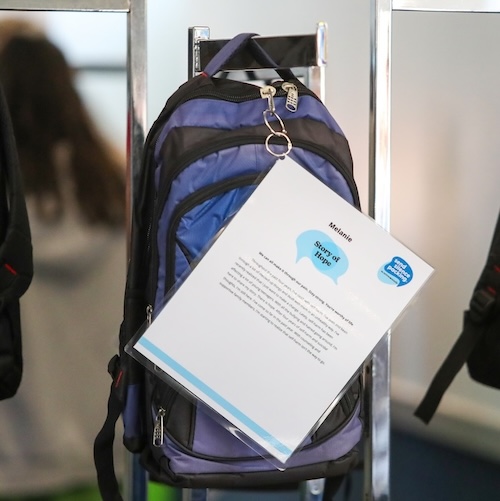SHARE ON A BACKPACK OR THE BEHIND THE BACKPACKS ONLINE EXPERIENCE
The stories showcased on the Send Silence Packing Exhibit feature messages of Loss, Survival, Resilience, Hope, and Help-Seeking. Read through the Story Guidelines first before putting your story together and then submit your story through the form linked to the button below.
We work very closely with each storyteller to ensure that they are happy with the outcome and that it supports our chief goal of lasting culture change around mental health.
For more information around how to best tell your story, feel free to review the 988 Suicide & Crisis Lifeline’s Storytelling for Suicide Prevention Checklist.
Story Submission Portal


